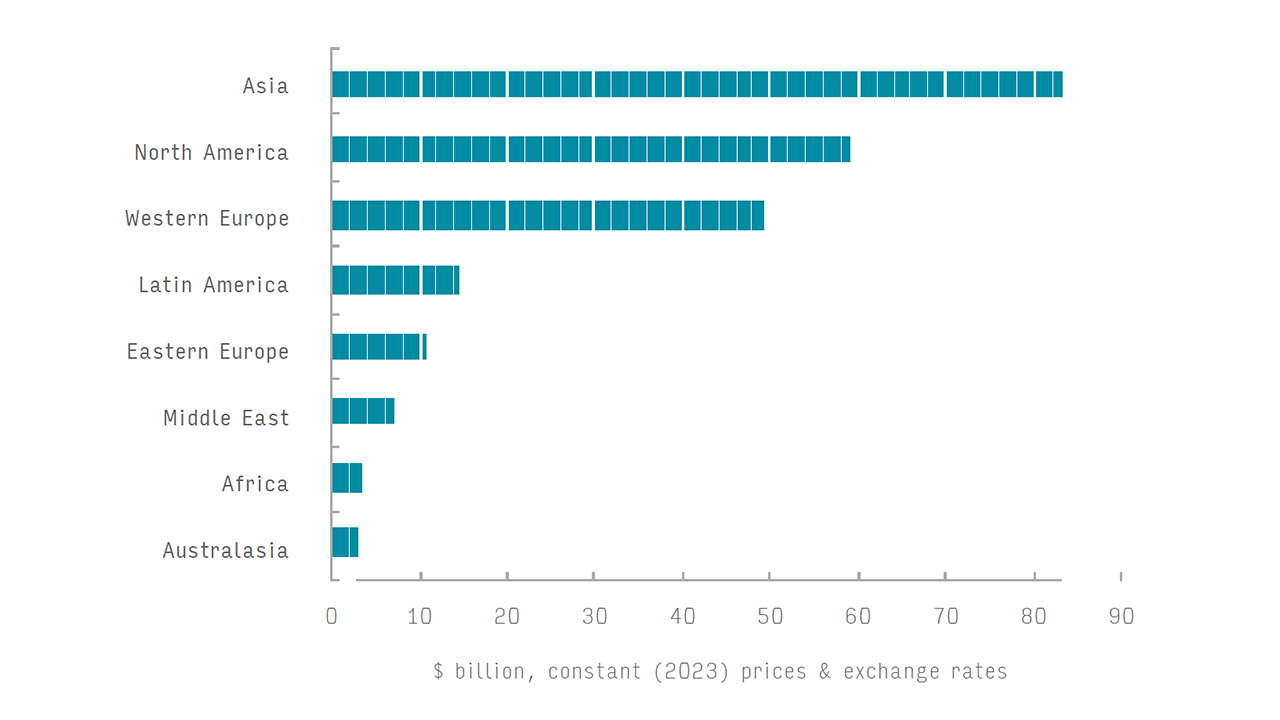Takara Pac champions flexo in Japanese market
While PS labels are overwhelmingly printed by letterpress in Japan, the CEO of leading converter Takara Pac believes that the situation is about to change.

Kunio Tsuda, president and CEO of Takara Pac, with HP Indigo WS6800
Founded in 1955 as a sales company for adhesive cellophane tape, Takara Pac is today one of Japan’s leading converters of self-adhesive labels – and one of the very few to have invested in flexography in a market still dominated by letterpress.
Kunio Tsuda is president and CEO of Takara Pac and is chairman of the Flexo Technical Association of Japan (FTAJ), so he has a significant stake in encouraging the transition to flexo.
‘In the 1960s my father traveled to the US where he saw firsthand the stability of the flexographic process,’ recalls Tsuda. ‘In 1967, we introduced Sohn flexo presses from the US for adhesive label printings ahead of other companies here. As a pioneer of flexo printing technology in Japan, we have become a core member of Flexographic Technical Association of Japan, and are working to promote flexo printing technology in Japan.’
Takara Pac was also a digital printing pioneer, installing an HP Indigo press in 2010, well ahead of the curve in Japan.
In fact, Takara Pac has led the Japanese industry forward in many areas. For example, sustainability has long been a core component of the company’s culture. As far back as 2004, Takara Pac was awarded ISO14001 environmental certification, which it has maintained every year since then.
We have become a core member of FTA of Japan and we are working to promote flexo printing technology in Japan
Takara Pac is one of a growing number of Japanese converters moving outside Japan. ‘In 2013, looking ahead to globalizing markets, we started an overseas operation based in Thailand,’ recalls Tsuda.
Factory tour
Visiting Takara Pac’s main label operation in Yokohama demonstrates the key issue facing Japanese label converters: the difficulty and expense of finding factory space in densely-populated Tokyo.
Takara Pac currently operates two MPS UV-flexo presses, the most recent of which is a 10-color EFA 340 installed in 2020. ‘We visited Labelexpo Europe 2019, where we had the chance to see the press in action on the MPS stand,’ recalls Tsuda.
This summer, a third, 8-color MPS press will be installed and equipped with GEW’s ArcLED exchangeable LED/mercury cassette system. ‘We are very interested in LED because of the reduced energy consumption,’ says Tsuda. ‘And if all UV units are LED, we do not need to vent ozone emissions.’
In addition to the MPS presses the Yokohama facility houses 4-color and 1-color Taiyo flexo presses.
The HP Indigo WS6800 is also located in the plant alongside the flexo presses. ‘This covers the small-lot market and the quality is good. It is also good for the environment with no plates and no setup waste.’
Takara Pac runs a second company in Osaka that currently uses letterpress. ‘But now they are interested in flexo because it takes a long time to teach a letterpress operator about color,’ says Tsuda.
Multi-layer specialist
Takara Pac specializes in high-value promotional labels, which double as point-of-sale (POS) marketing tools. These include intricate stickers-on-a-label that allow elements of the label to be removed and re-adhered; and a front label that mimics a ‘lens’ by printing a magnified image on the adhesive side of the back label, viewable through the ‘lens’ on the front. This clever promotional device can be applied to a wide range of products, from shampoos, gel products, deodorants and air fresheners to alcoholic beverages.
Takara Pac also specializes in security labels and track and trace label technology. ‘Going forward, we aim to make full use of automatic recognition technologies such as barcodes, two-dimensional symbols, and IC tags, as well as information technologies such as AR, to help rationalize our customers’ packaging processes from design planning to final product packaging,’ says Tsuda.
Takara Pac has been building label applicators and box-sealing systems since the early 1960s. Tsuda sees this as fulfilling an important part of the customer journey from label design to final application to the product, with each stage managed and quality assured by Takara Pac.
Why has flexo not taken off in Japan?
Most Japanese label converters are small, family-run businesses operating in small-footprint workshops without space for in-line flexo presses. These converters also value the ability to adjust color during the press run – part of the industry’s ‘craft’ mindset. As president of the FTAJ, Tsuda believes this mindset is changing. ‘I see interesting developments in flexo. Some Japanese press manufacturers have tried to make compact flexo presses. We see Southeast Asia is now moving to flexo, which also encourages Japanese letterpress manufacturers to switch to flexo. Flexo is the future for these companies.’
Stay up to date
Subscribe to the free Label News newsletter and receive the latest content every week. We'll never share your email address.


